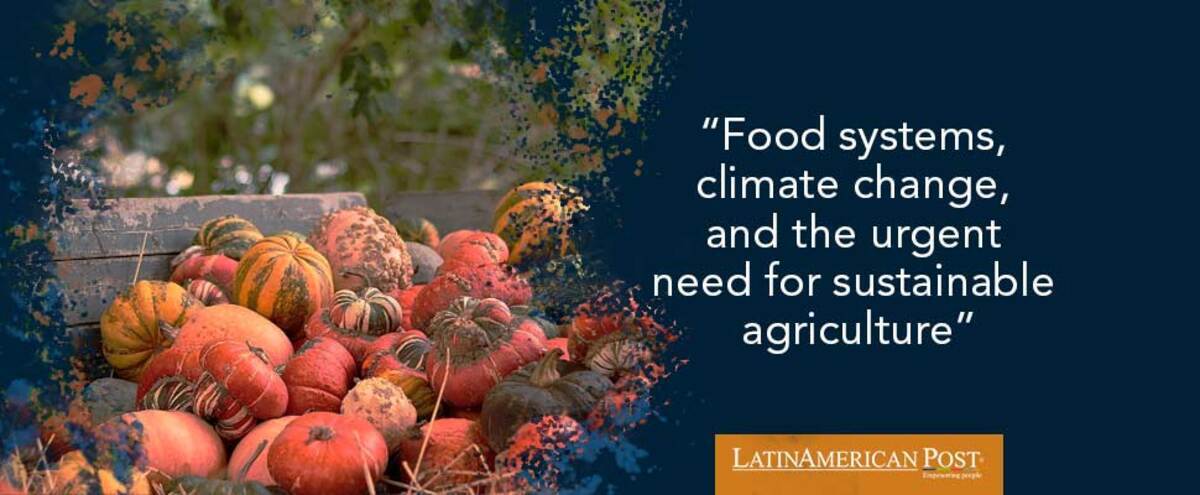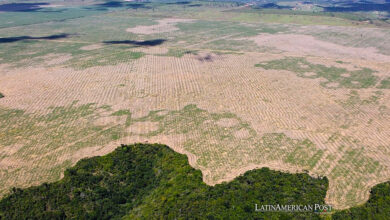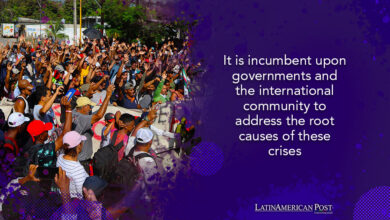Embracing Change: A Sustainable Revolution in Our Food System
The recent report from the Global Alliance for the Future of Food underscores a stark reality: our food production, transportation, and storage are significant contributors to greenhouse gas emissions. This alarming fact calls for an urgent and radical transformation in how we approach our food systems.

Photo: LatamPost
The Latin American Post Staff
Escucha este artículo
Leer en español: Abrazar el cambio: una revolución sostenible en nuestro sistema alimentario
The Interconnectedness of Food and Planet
Our food – its production, its journey from farm to table, and its very essence – is intricately tied to the well-being of our planet. The Global Alliance for the Future of Food's recent report offers a sobering look at the environmental cost of our current food systems, pointing out that more than a third of total greenhouse gas emissions come from food production, transportation, and storage. But beyond these alarming statistics lies a roadmap for change – a change we must embrace for our future.
Fossil Fuels: A Looming Threat
The increasing use of fertilizers, symptomatic of a growing energy appetite in food systems, spells out an uncomfortable truth. Our dependence on fossil fuels is not just unsustainable; it's a ticking time bomb. Patty Fong of the Global Alliance drives the point home: to avert a climate disaster, we must expunge fossil fuels from our food systems and, indeed, from our broader economy.
Transitioning to renewable energy and adopting regenerative, agroecological agriculture practices isn't just about safeguarding the environment. It's a multifaceted solution that promises more affordable food, improved food security, job creation, enhanced health, and a formidable weapon against hunger. This holistic vision, focusing on renewable energies and sustainable agriculture, transcends mere environmental conservation, embodying economic and social upliftment.
A Paradigm Shift: Decoupling Food and Fossil Fuels
The demand for food is expected to surge by up to 56% by 2050. Meeting this demand under the current fossil fuel-dependent paradigm is a recipe for disaster. A paradigm shift is essential – one that decouples food production from fossil fuels. We must fundamentally rethink how we produce and consume our food. Embracing practices like agroecology and land regeneration and pivoting to plant-rich diets are not just options but necessities.
Ahead of COP28, the report's call to policymakers and fund donors is clear: phase out the use of agrochemicals derived from fossil fuels, lean into renewable energy for food processing, and reassess subsidies for biogas and biofuel producers. This calls for a revolution – not just in technologies and practices but in mindsets and policies.
Overcoming Transitional Challenges
Critics might argue that such comprehensive shifts could be more practical and economically disruptive. However, the cost of inaction – in terms of climate change, health, and economic inequalities – far outweighs the transitional challenges. The transformation advocated by the report is not just about preventing environmental degradation; it's about building a more equitable, healthier, and resilient food system.
This is not an uncharted territory. Numerous communities and countries have begun demonstrating that sustainable, low-emission food systems are viable. Organic farming, permaculture, and renewable energy integration in agriculture are no longer fringe concepts but increasingly mainstream practices. They offer glimpses into a possible future where food systems are in harmony with nature.
This isn't just an environmental issue; it's an ethical imperative. How we respond to the challenges in the report will define our commitment to future generations. Will we cling to short-term gains and outdated practices, or will we take the bold steps necessary to ensure a livable planet?
Also read: Flour As An Inclusive Food, a Scientific Project From Venezuela
A Collective Endeavor
We must also acknowledge that this transition will be a collective endeavor. It demands engagement and collaboration across governments, industries, communities, and individuals. It requires a reconceptualization of our relationship with nature and reevaluating what we consider progress and success.
In conclusion, the recommendations of the Global Alliance for the Future of Food are not merely suggestions; they are a clarion call for urgent action. We need to fundamentally redesign our food systems based on principles of sustainability, equity, and resilience. This transformation is not just about avoiding a crisis but about creating a world where food becomes a source of life, not just for us but for the planet itself. Our response to this challenge will mark our legacy and define our era. Let's make it a gift of hope, action, and transformation.




